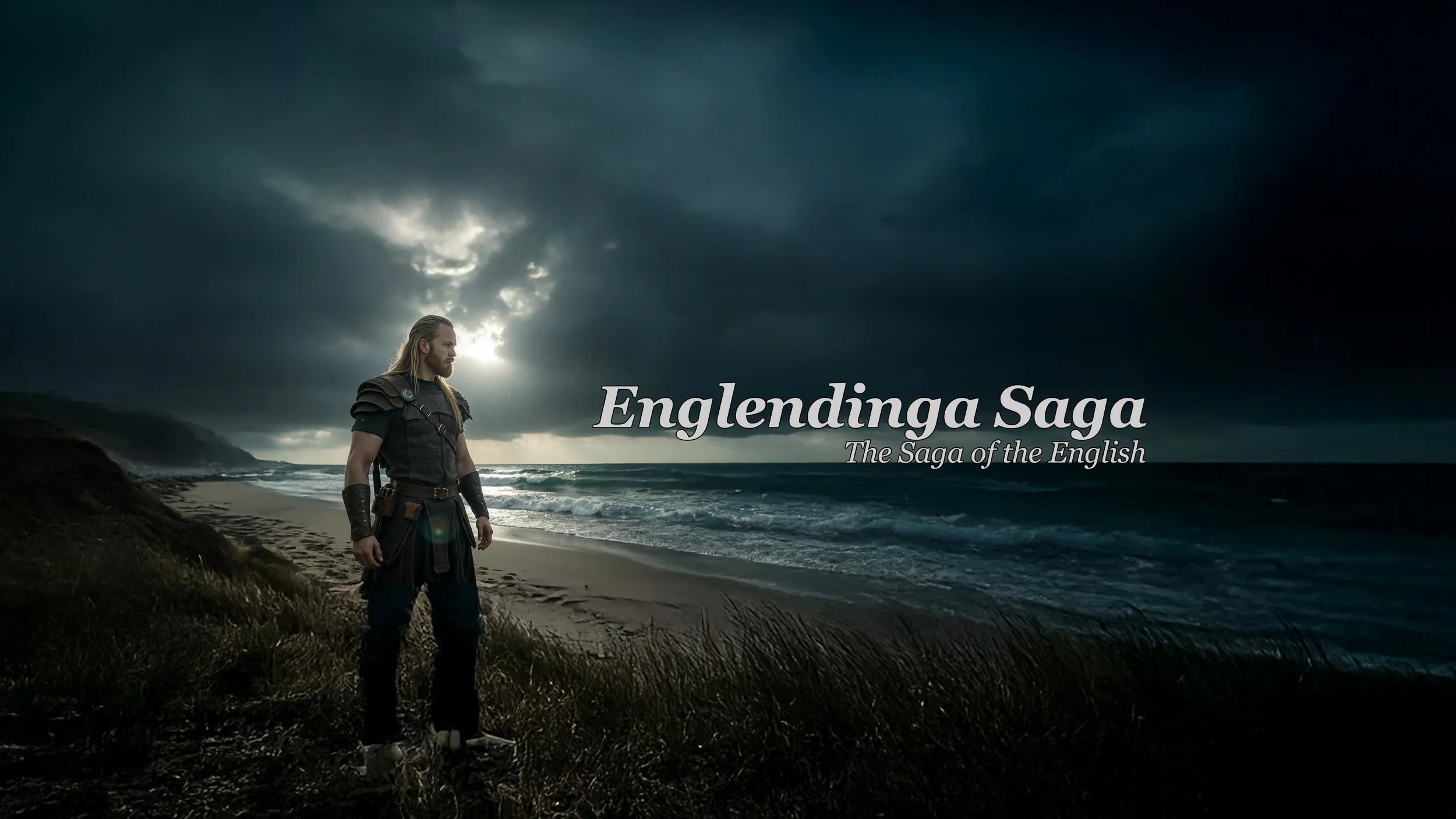
T H E W O R D H O R D E
Who knows, maybe you’ll learn something
Old Tongues. New Tales. Unearthing the raw power of Beówulf, the stark beauty of Anglo-Saxon verse, and the thunderous sagas of the Old Norse, this blog is your guide through the ancient words that shaped our world. Join us as we journey into the heart of heroic epics, explore the myths, and decipher the languages that echo through the ages.
The latest video from my Englendinga Saga YouTube channel
Ever wonder about the crazy stories behind England's past? Me too! This channel is where I'm attempting to untangle the heroes, myths, and family trees, focusing a lot on Beowulf. Warriors, monsters, good vs. evil – it's all in that Old English poem. As I dig into the poem's history and themes, we'll also be peeking at Anglo-Saxon and Old Norse culture, language, and mythology. Let's explore these ancient worlds together!
Beowulf: A Scandinavian Tale?
This article explores the compelling argument that the Old English epic, Beowulf, shares a common, ancient Scandinavian origin with the Icelandic Grettis Saga, rather than being an exclusively English creation. Drawing parallels between the monster-battling exploits of Beowulf and Grettir, particularly their encounters with…..
From Monster to Mate
This post explores John Gardner's novel Grendel as a reinterpretation of the epic poem Beowulf. It discusses how Gardner shifts the narrative perspective to Grendel, transforming him from a one-dimensional monster into a complex, introspective character grappling with existential and nihilistic themes…..
Beowulf: Monsters, Moms, and a Hero's Ballsy Dive
The blog post dives into the Old English epic Beowulf with a fun, irreverent tone. It argues that Grendel is undeniably a monster and explores the motivations of Grendel's mother, referencing Jane Chance's theory that her actions stem from grief rather than vengeance. The post then analyzes Beowulf's dive into the underwater lair as a symbolic journey and highlights the heroic qualities—honor, fearlessness, selflessness, and duty—demonstrated by Beowulf. It concludes by emphasizing the poem's enduring themes of courage and the battle against darkness, inviting readers to share their thoughts on heroism and the nature of monsters.
Grendel: Monster or Misunderstood Outcast?
The text argues that Grendel is unequivocally a monster, not a misunderstood outcast, due to his violent actions in Beowulf. It then shifts to Beowulf, suggesting he embodies the Heroic Age ideals more than specifically Anglo-Saxon ones, comparing him to an 80s action hero. The piece concludes by reiterating Grendel's monstrous nature and labeling Beowulf as an action hero.



